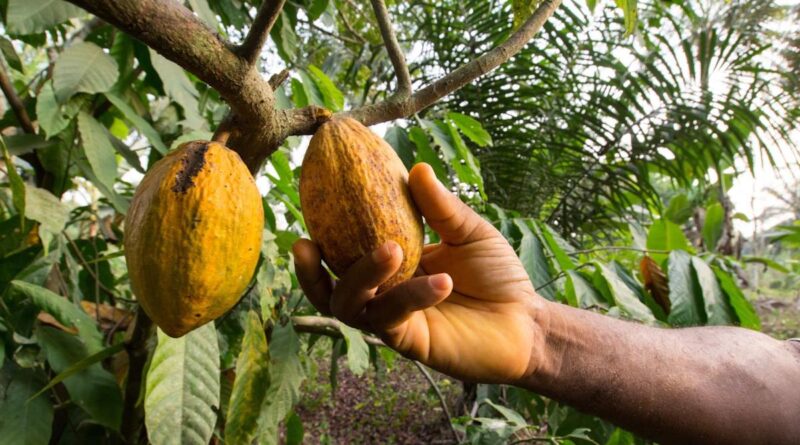Cameroon cocoa boom raises deforestation fears
Cameroon is emerging as a new frontier for cocoa production, raising concerns about cocoa-driven deforestation, according to not-for-profit group Mighty Earth.
In a new report, Mighty Earth warns the central African country is “becoming the next major hotspot for cocoa-driven deforestation”.
Cameroon is experiencing a cocoa boom as top producers such as Ghana and Côte d’Ivoire are facing declining productivity due to global heating, crop disease and outdated farming practices.
Europe, which imports over 50% of global cocoa beans and accounts for 75% of chocolate sales, is Cameroon’s largest export market.
During the 2023/24 season, 80% of the country’s cocoa was exported to the EU.
The report, utilising satellite imagery and field investigations in regions such as Nkondjock, Yabassi, and Njombe, reveals ongoing cocoa-driven deforestation, Mighty Earth said.
The NGO warns the deforestation could potentially violate the EU Deforestation Regulation (EUDR), set to take effect in December after already being postponed. Under the directive, companies marketing products including cocoa, coffee and palm oil in the EU will have to demonstrate their supply chains are free from deforestation-related impacts.
The EUDR mandates companies marketing products like cocoa in the EU to ensure deforestation-free supply chains.
Mighty Earth cautioned that without urgent and coordinated action from companies, the EU, and the Cameroonian government, smallholders risk losing access to their largest market once the EUDR legislation is enforced.
Thea Parson, senior associate at Mighty Earth and co-author of the report, said: “To safeguard Cameroon’s access to its biggest market, the EU, and prevent further forest loss, farmers need to be better supported to improve practices, meet EUDR compliance and be fairly compensated.
“The EUDR gives Cameroon a chance to take a different path – but only if companies act now to ensure full traceability. So far, they are falling short.”
Since 2020, Cameroon has lost over 781,000 ha of forest, with half of this loss occurring in cocoa-growing regions, the Mighty Earth report read.
In some areas, forest cover has declined by more than 40% over the past five years, it added.
Despite higher farmgate prices in Cameroon compared to Ghana or Côte d’Ivoire, 69% of cocoa farming households live below the poverty line, the NGO said.
Farmers receive less for their beans due to intermediaries known as “coxeurs”, who take substantial margins, leaving farmers underpaid and complicating supply chain traceability.
The system often results in beans from deforested areas being mixed with those from monitored farms, threatening companies’ deforestation-free sourcing commitments.
